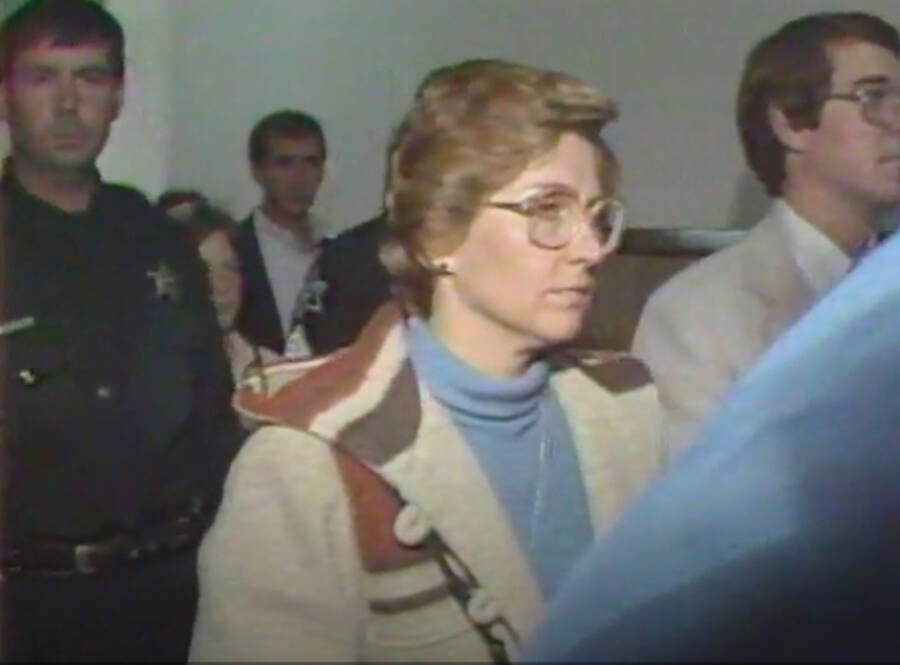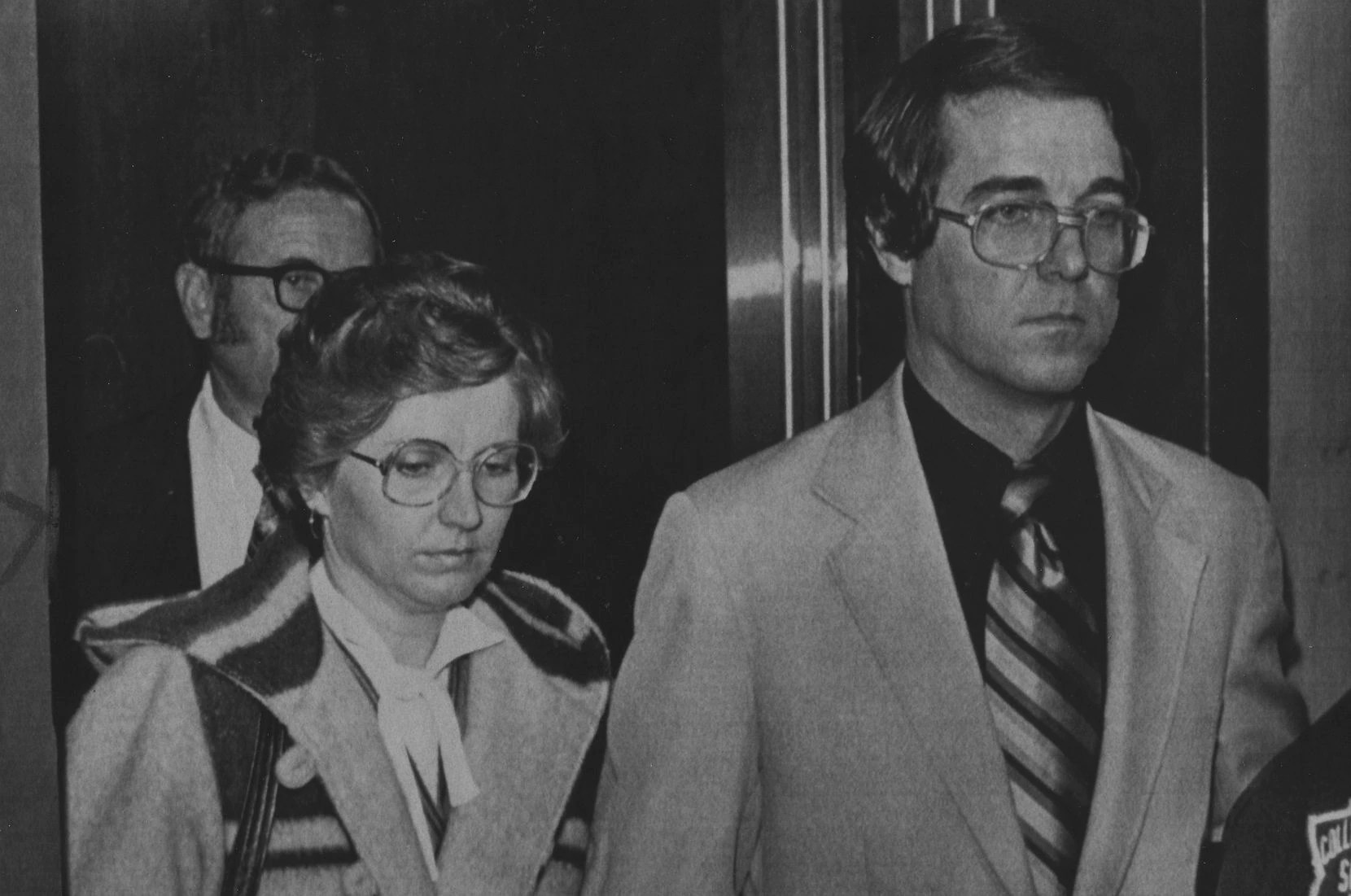In its penultimate episode, HBO Max’s ‘Love and Death’ begins the trial of Candy Montgomery. Everyone knows what happened, but the how and why is still under question, which is what Candy’s case rests on. Don Crowder knows what’s important for the jury, and the defendant’s appearance makes a lot of difference. Candy’s lawyer controls everything from her clothes to her haircut and her glasses because he knows these things make a difference for the jury. Candy does whatever he asks, but Crowder is puzzled when he finds her sitting emotionlessly while the trial progresses. He knows this is not her natural self, which means she is on something. Was Candy Montgomery in mediation during the trial? Let’s find out.
Candy Montgomery’s Medication During the Trial
Yes, Candy Montgomery was on medication during her trial. In the article ‘Love and Death in Silicon Priaire: Part II,’ the description of Candy paints the picture of a woman who is too calm. It says: “Candy was less than a model witness. Her voice was clipped and nasal, her manner cool. As Crowder questioned her—about her children, her upbringing, her community and church activities, her friendship with the Gores—Candy gave short, functional answers. She sounded like a stuffy schoolmarm, overenunciating her sentences and banishing all emotion from her voice.”

To an outsider, Candy’s calm demeanor in the court, while people gave testimonies about the murder and the sheer brutality they witnessed on the crime scene, would suggest that she wasn’t moved by any of it. She wouldn’t flinch when they discussed the blood and the 41 blows on Betty’s body. This made her look inhuman, like a zombie, as Don Crowder says in the TV show. It was not a good look for someone trying to prove that they are not the monster, even if their actions suggest so.
Crowder knew that proving Candy killed Betty would be easy, so instead of pleading not guilty, he focused on claiming self-defense. For this, he needed the jury to sympathize with Candy; for that, they needed to see her as the loving and lively person everyone in her community knew her as. If she were to get overwhelmed with emotions during the trial, this would only show that she was human and not the cold-blooded killer the prosecution painted her to be.
For Elizabeth Olsen, who plays the role of Candy Montgomery, it was important to know Candy’s mindset during the trial. In an interview with The Hollywood Reporter, she revealed that Robert Udashen, Candy’s lawyer, was an advisor on ‘Love and Death.’ Olsen asked him how sedated Candy had seemed during the trial. With Udashen consulting on the series and advising on how much medication Candy seemed to have taken around that time, it can be confirmed that Candy did take something to calm her nerves.

Another mention of Candy medicating herself during the trial comes in John Bloom and Jim Atkinson’s non-fiction book, ‘Evidence of Love: A True Story of Passion and Death in the Suburbs.’ The book details everything about Candy Montgomery’s case and mentions that Candy had been on Serax since the first day of the trial. The show is inspired by the book and picks up these details directly from the source.
For someone going through such a turbulent time, it is not surprising that Candy would resort to something to calm her nerves. She has been agitated since Betty’s death, and at home, we see her busying herself with all sorts of work. She cooks, cleans, and gardens, all with a dedicated fervor to keep her mind off of the fact that she might end up in prison for the rest of her life. In the court, however, she has to sit in one place, and she cannot distract herself from the witnesses talking about and repeating the minute details of Betty’s death and its aftermath. Candy knows she would break down every other moment if she didn’t medicate herself. With the media documenting her every move, she doesn’t want to give them the satisfaction of breaking down and give them another thing to write and gossip about.
Read More: Did Candy Montgomery Have a Mental Illness? Why Did She Snap?


You must be logged in to post a comment.